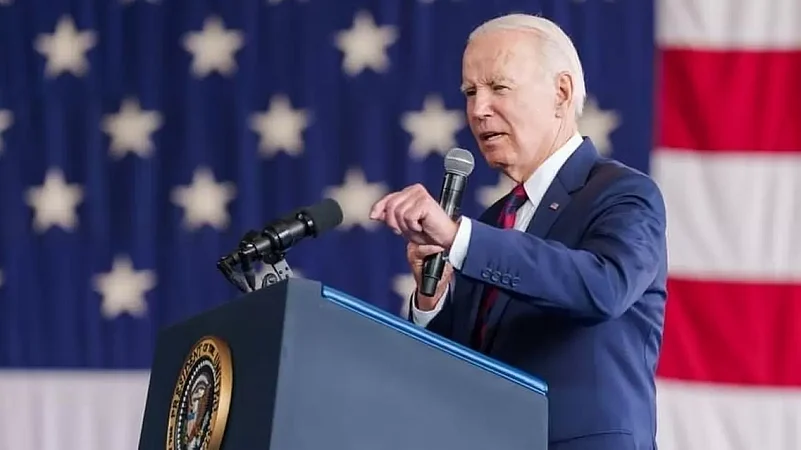House Speaker Kevin McCarthy, a Republican from California, on Tuesday announced that he is instructing House committees to initiate an impeachment inquiry against President Biden. This decision comes after facing mounting pressure from certain members of his caucus situated on the right side of the political spectrum, who have been advocating for this move over the past few months.
McCarthy stated that the investigation will center around potential advantages President Biden may have gained from his son Hunter Biden's business involvements, alongside other matters. He asserted that these allegations encompass abuse of authority, hindrance of justice, and impropriety, thus justifying a deeper probe by the House of Representatives.
House Republicans have yet to present concrete evidence demonstrating that President Biden directly gained from his son's business activities in Ukraine and other locations. They have raised claims that the Justice Department obstructed an inquiry into Hunter Biden's financial transactions.
Impeachment inquiry
An impeachment inquiry is a process established by the U.S. Constitution, giving Congress the authority to initiate proceedings against the President, Vice President, and other federal officials if they are suspected of committing acts of treason, bribery, or "other high crimes and misdemeanors." This constitutional provision was designed to serve as a mechanism to restrain executive authority and could potentially lead to the removal of the accused official from their position.
An impeachment inquiry essentially empowers Congress to conduct investigations aimed at ascertaining whether an individual has engaged in actions that could be deemed grounds for impeachment.
When McCarthy declared his intention to initiate an inquiry, he designated three committee chairs to spearhead the investigations: James Comer (R-Ky.), Chair of the House Oversight Committee, in collaboration with Jim Jordan (R-Ohio), Chair of the Judiciary Committee, and Jason T. Smith (R-Mo.), Chair of the Ways and Means Committee.
History of impeachment
Three U.S. presidents have faced impeachment proceedings in the past. Andrew Johnson was impeached for his dismissal of the secretary of war. Bill Clinton faced impeachment for providing false testimony under oath and obstructing justice in an attempt to conceal his affair with intern Monica Lewinsky. Donald Trump, on two separate occasions, faced impeachment charges. His first impeachment was related to allegations of abuse of power and obstruction of Congress concerning his actions involving Ukraine aid. The second impeachment was initiated due to accusations of inciting an insurrection.






















